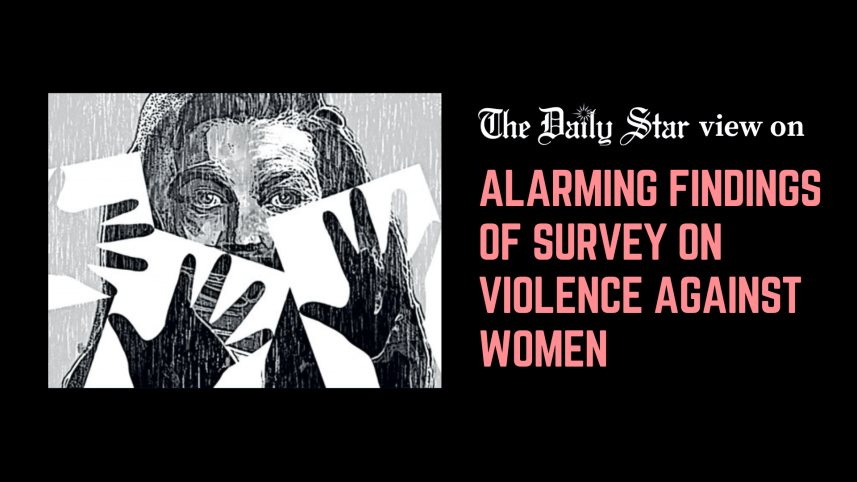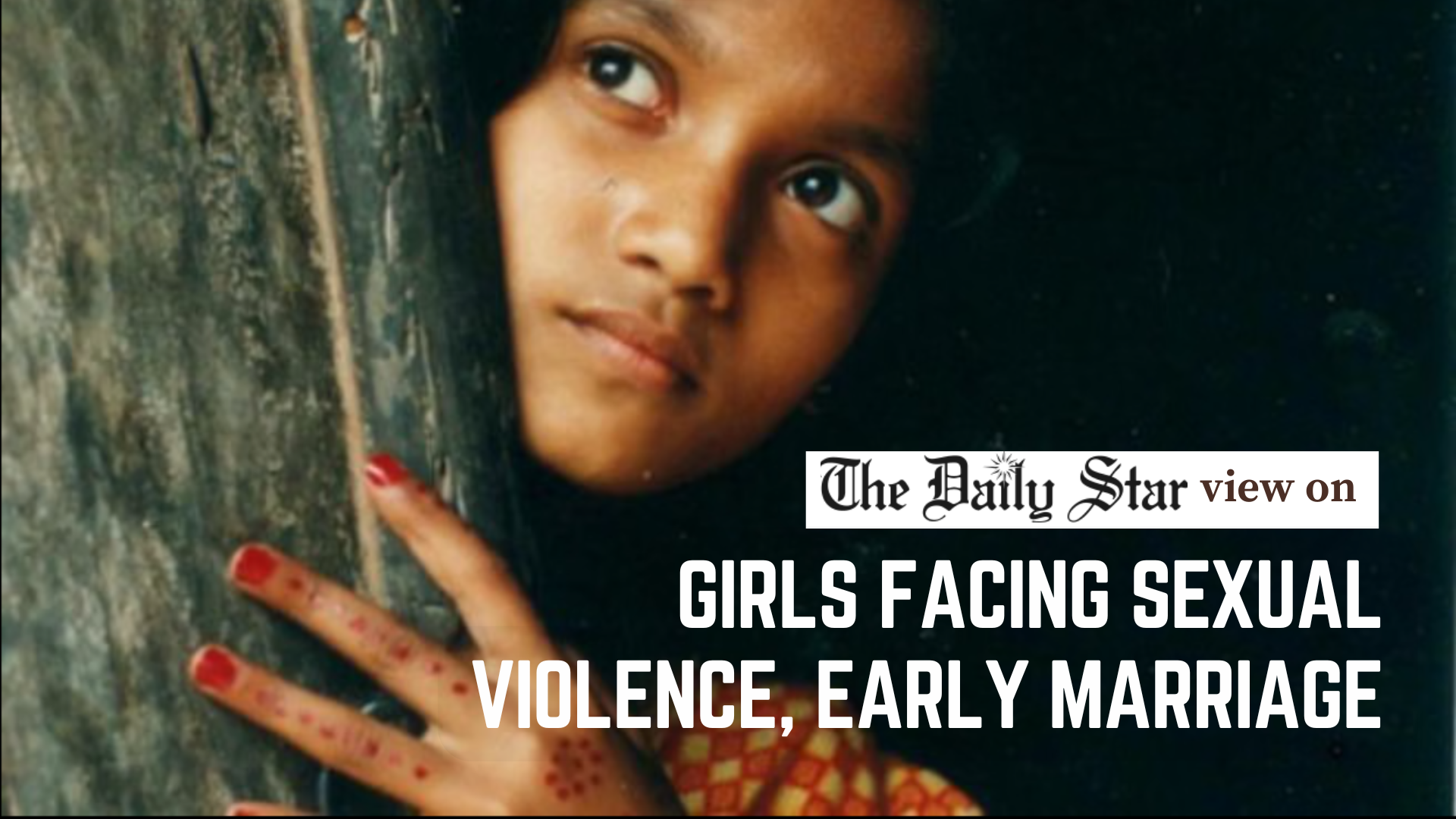Don’t normalise violence against women

The outcome of a recently unveiled national survey on violence against women, jointly conducted by the Bangladesh Bureau of Statistics (BBS) and the United Nations Population Fund (UNFPA), is truly depressing. It's a shameful reflection of the deep-rooted discriminatory mindset of not only policymakers but also society in general. Perhaps the survey's most shocking, if not entirely surprising, finding is that most offenders are those whom victims usually trust: close family members, intimate partners, or husbands. It also paints a grim picture of marital relationships, with three out of every four women saying they have experienced some form of intimate partner violence.
Our policymakers need to take a hard look at the underlying causes of the persistent and appalling trend of physical and psychological abuse of women. One key factor behind its normalisation is the feudal notion of so-called family honour, which restricts or discourages women from speaking out about the violence they face. The survey found that two in every three women never shared their experiences with anyone. Covering 27,476 women aged 15 and above nationwide, the survey shows how violence continues to affect women in every social group, including those living in slums, disaster-prone areas, and women with disabilities.
Another deeply worrying finding is that 62 percent of survivors of such violence are girls aged between 15 and 19—either victims of child marriage or barely above the legal age limit. This fact alone should raise alarm, as it reflects the failure of national initiatives to prevent child marriage. These young women will likely bear the scars of marital violence for years to come, as it inevitably affects their family lives and mental and physical well-being.
The survey—the third national study of its kind, following earlier rounds in 2011 and 2015—exposes the distressing reality that, instead of seeing improvements in women's safety over time, their suffering continues apace. It is also deeply concerning that state support for victims of violence remains so inadequate and ineffective that more than 51 percent of women do not know where to report abuse. Although the authorities have introduced some special programmes, including the telephone helpline (short code 109) and One-Stop Crisis Centres (OCCs), awareness of these support services remains alarmingly low. Less than 13 percent of women apparently know about the helpline, while only 2.2 percent have heard of the OCCs.
This state of affairs is unacceptable. To prevent the widespread violence against women, the government must intensify its campaigns to raise awareness about available state support, expand and strengthen the support services, ensure justice for victims, and redouble efforts to eradicate child marriage. Sociocultural organisations must also step up and build strong social resistance against all forms of violence targeting women and girls.



 For all latest news, follow The Daily Star's Google News channel.
For all latest news, follow The Daily Star's Google News channel. 

Comments